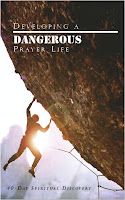Silence
After a long, hard day of work I love to retire to the refuge of my home. Not!
I love my home and my family, but there is usually a meal to make, mail to sort, dishes to clean, and so forth. Hardly a refuge. You know the drill. You change from one set of expectations to another. Different activities, but the same pace and relentless demands. It seems like the world doesn’t slow down. Only the scenery changes.
There is an antidote for this, you know. But it involves sacrifice and swimming upstream against the ubiquitous din of our culture. The answer is silence.
Silence is the white space that gives the text its meaning. We often think it is the words, but you would only be able to distinguish the shape of the letters when they are in contrast to the white space around them. Silence gives meaning to our thoughts and words.
Our world runs at a frantic pace in which one thing after another bombards us and call out for our immediate and full attention. Cell phones, text messages, billboards, radio ads, television programming, emails, letters and personal conversations demand that our senses be tuned to their urgent demands for attention.
Doesn’t that make you long for the leisure of thought and reflection?
The Biblical writers lived in a less complex world. Yet even they understood the value of silence. Job expressed it near the end of the book. This was after listening to the incessant babble of “wisdom” from his friends. Once Job encountered God and understood who God is he quit talking and started worshipping.
“Then Job answered the Lord: “I am unworthy—how can I reply to you? I put my hand over my mouth. I spoke once, but I have no answer— twice, but I will say no more.” ” (Job 40:3–5)
When the Lord confronted Habakkuk over the grievous sin of the nation, he replied with silence.
“But the Lord is in his holy temple; let all the earth be silent before him.” ” (Habakkuk 2:20)
At the end of the age, when God breaks open the seventh seal of judgment on the earth, the only appropriate response will be silence.
“When he opened the seventh seal, there was silence in heaven for about half an hour. ” (Revelation 8:1)
We underestimate the value of silence in our world today. Silence is an act of humility that speaks little and comprehends much. Listen to the words of Robert Webber, from his book, The Biblical Foundations of Christian Worship.
In the presence of the mystery of the being of God, silence is an appropriate act of worship. Silence is the recognition that human utterance is often presumptuous in the face of the divine self-revelation. Before the Creator, the creature must confront his or her finitude. The worshiper is as nothing before him who is all. The biblical worshiper understands that to occupy oneself with verbal products of the human mentality is an act of pride, in effect a denial of God’s place as sovereign Lord (Ps. 131:1; Job 42:3).[1]
In music it’s easy to think that the notes are the most important part of the score. But maybe, just maybe, it’s the rests. No cacophany of empty phrases. No scripted soliloquies. Just me. And God. In silence. In worship.
[1] Robert Webber, The Biblical Foundations of Christian Worship, 1st ed. (Nashville, Tenn.: Star Song Pub. Group, 1993), 290.

Comments
Post a Comment